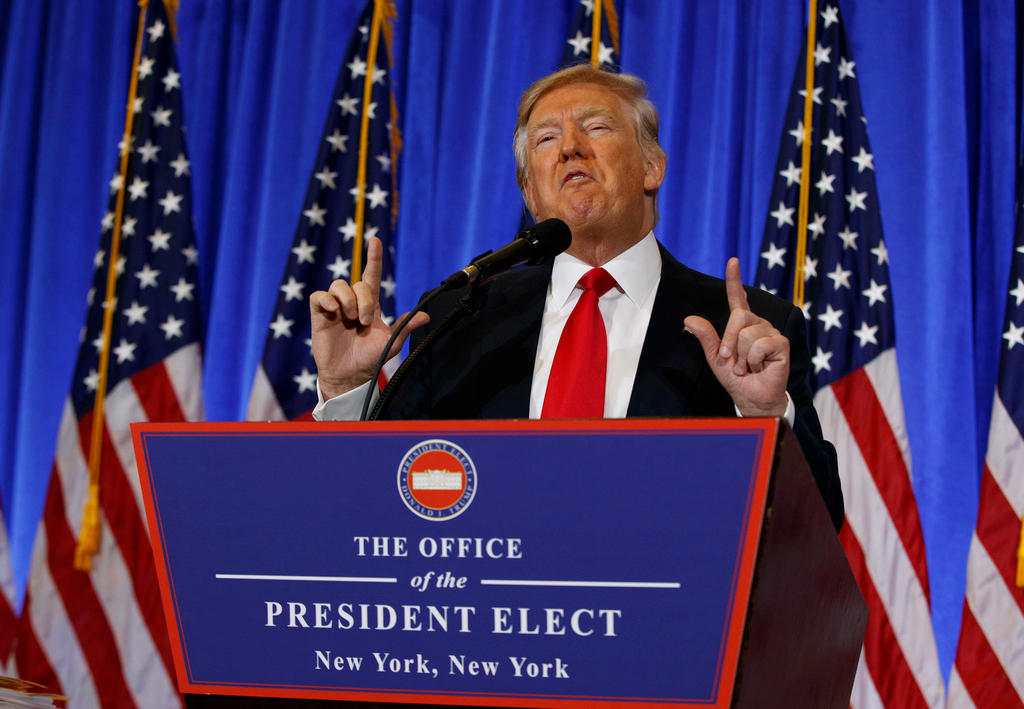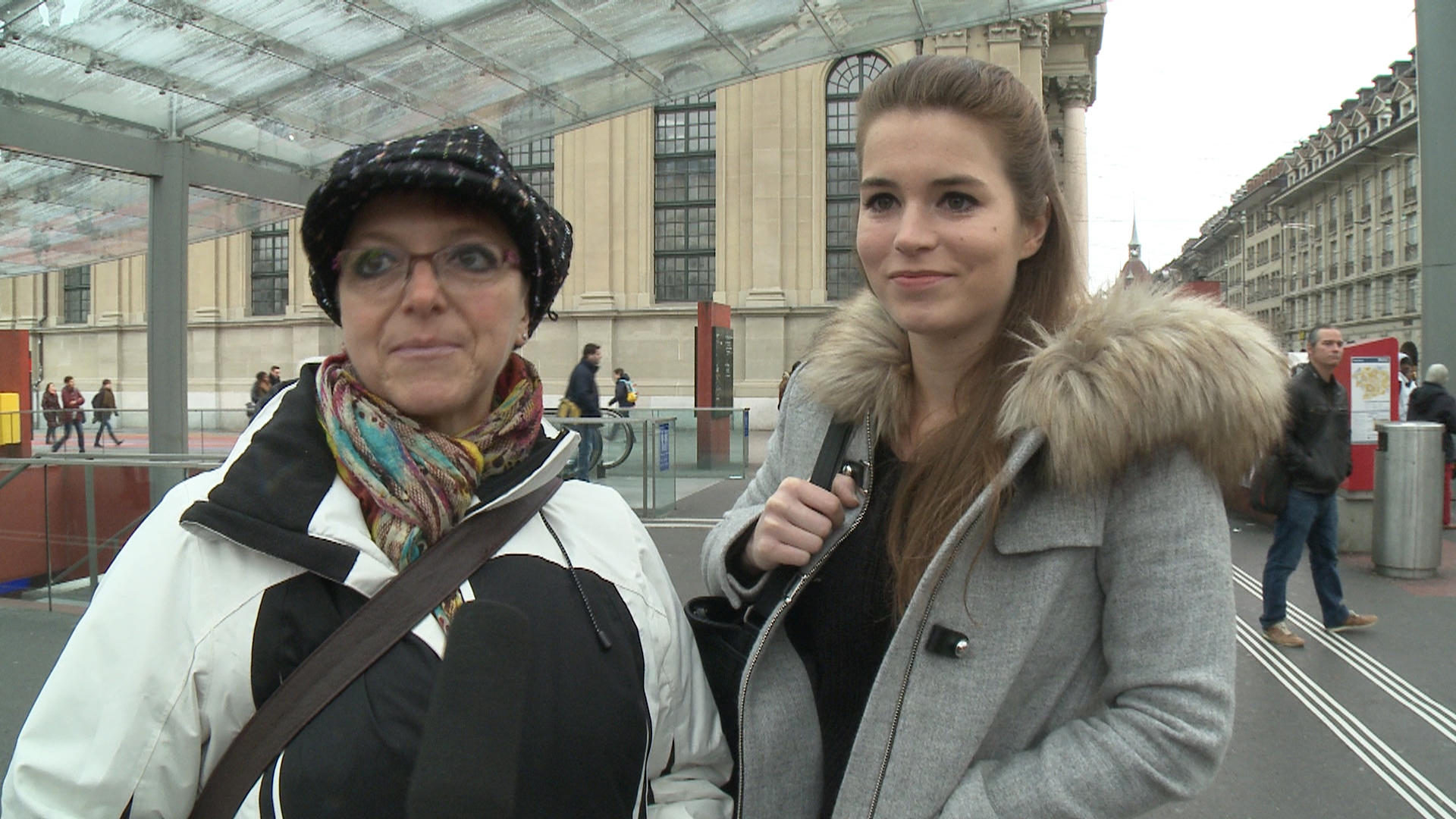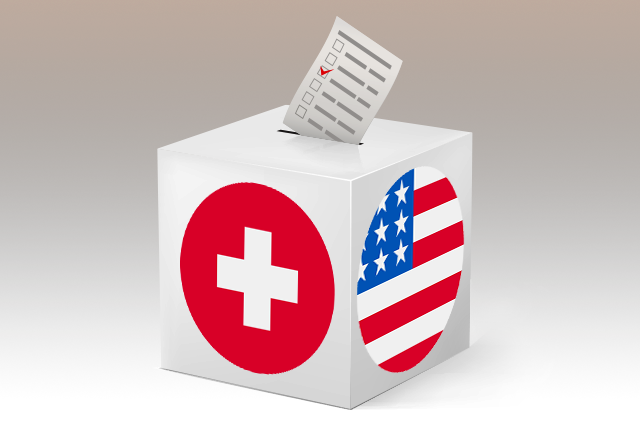Trump press conference was a ‘bad day for democracy’

Donald Trump’s turbulent first news conference as president-elect on Wednesday and unverified allegations against him suggest his upcoming presidency is getting off to a bad start, several Swiss papers declared on Thursday.
In his first news conference since the November 8 election, nine days before he takes the oath of office, Trump blasted the release of an unsubstantiated intelligence report that said he had been compromised by Russia and was vulnerable to blackmail, calling the claims a “disgrace”; he also attacked media outlets which published them.
An editorial in the French-speaking Le Temps newspaper entitled “Unravelling the truth from the lies”, said one thing was certain: “The presidency of Donald Trump will get off to one of the worst possible starts.”
Le Temps warned this new episode would have important political consequences, adding that it had “poisoned American political life ten days before the president-elect takes over”.
If the allegations are proven wrong, intelligence heads could roll, but if they are substantiated, “the new president will find himself in a difficult position and could risk an impeachment procedure”, said Le Temps.
The German-speaking daily Tages-Anzeiger described the events on Wednesday as a “bad day for democracy”.
“His low approval ratings [lowest of any incoming president dating back to 1992] shows that the president-elect is already tarnished. That is not good for Donald Trump, not good for America and not good for the rest of the world,” it wrote.
Dodging questions
Swiss president ‘worried’ by Trump behaviour
In an interview on Swiss public radio RTS, on Thursday, Swiss President Doris Leuthard commented on Trump’s behaviour and declarations as he prepares to take over at the White House. She said his way of working, especially his communication via Twitter, seemed “difficult” for a president “who needs to reflect, analyse situations and ensure good international relations”.
“Let’s see if he changes this way of managing politics and if he calms down a bit or if it’s his real way of operating,” she said. “It’s a bit worrying, as the US is a global power in lots of areas. We need trust and confidentiality. All these uncertainties are not good for the economy or for international conflicts where the US has a moderating role or intervenes militarily.”
The Tribune de Genève commented on Trump’s style of doing politics and his “art of dodging” questions during the news conference, which it said was a copy-paste of his presidential campaign.
“Once again he was implicated for his links to Russia, but Donald Trump prepared the field for his first meeting with the press since July 2016. He published an extremely critical tweet against his own intelligence services [accusing them of allowing fake news to leak into the public] asking whether Americans were “living in Nazi Germany?”.
“Once on the podium, the future president multiplied his exaggerations, theatrical statements and attacks against the press, repeating this comparison between the US and Nazi Germany, and twisted and turned on questions about his links to Russia.”
During the press conference Trump also vowed to begin negotiations with Mexico on building a border wall. He also said he would offer a plan to repeal and replace Obama’s health care law and described how he would separate himself from his global business operations to avoid conflicts of interest once he takes office.
But for the Tribune de Genève the news conference was a way of avoiding difficult questions and of “addressing his supporters directly”, especially with comments such as, “I said I will be the greatest jobs producer that God ever created, and I mean that”.
Swiss ‘opportunities’
In an editorial on Thursday the Neue Zürcher Zeitung (NZZ) took a slightly different tack, pointing to opportunities for Switzerland in Trump’s new ‘world disorder’.
It said Trump’s entrance into the White House next week was a “turning point” but said it was dangerous to draw premature conclusions from his “seemingly erratic way of communicating”, adding that “only a fraction of his announcements should be followed closely”.
“The new isolationism in the US, Europe’s identity crises and strengthening of emerging states is changing the starting point for Swiss foreign policy – and this is not a totally bad thing,” it wrote. “Swiss diplomacy looks forward to these troubled times.”
“It’s foreseeable that the world under the new US president will become more crisis-prone, more unpredictable and multipolar,” the NZZ warned. “Switzerland can only make the most of the opportunities if it maintains good independent relations with the international system.”
It said if tensions grew between the US, Europe, Russia and China, Swiss diplomats could be called upon to act as intermediaries.
However, one aspect that seems missing is a direct line to the White House or Trump Tower, the NZZ wrote.
This is important as the new president is likely to be interested in Switzerland’s immigration policy and other issues like how the alpine nation operates outside the European Union and NATO, and direct democracy, it went on.

In compliance with the JTI standards
More: SWI swissinfo.ch certified by the Journalism Trust Initiative














You can find an overview of ongoing debates with our journalists here . Please join us!
If you want to start a conversation about a topic raised in this article or want to report factual errors, email us at english@swissinfo.ch.